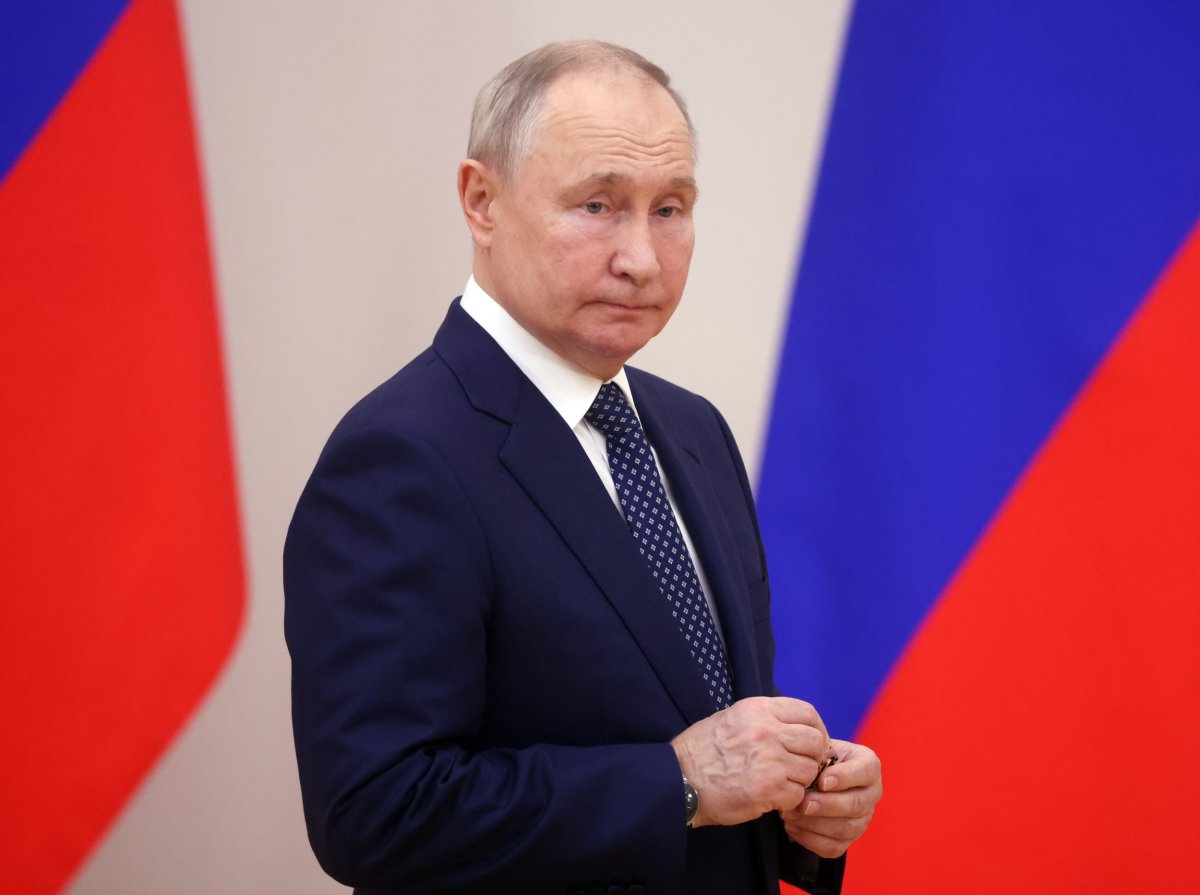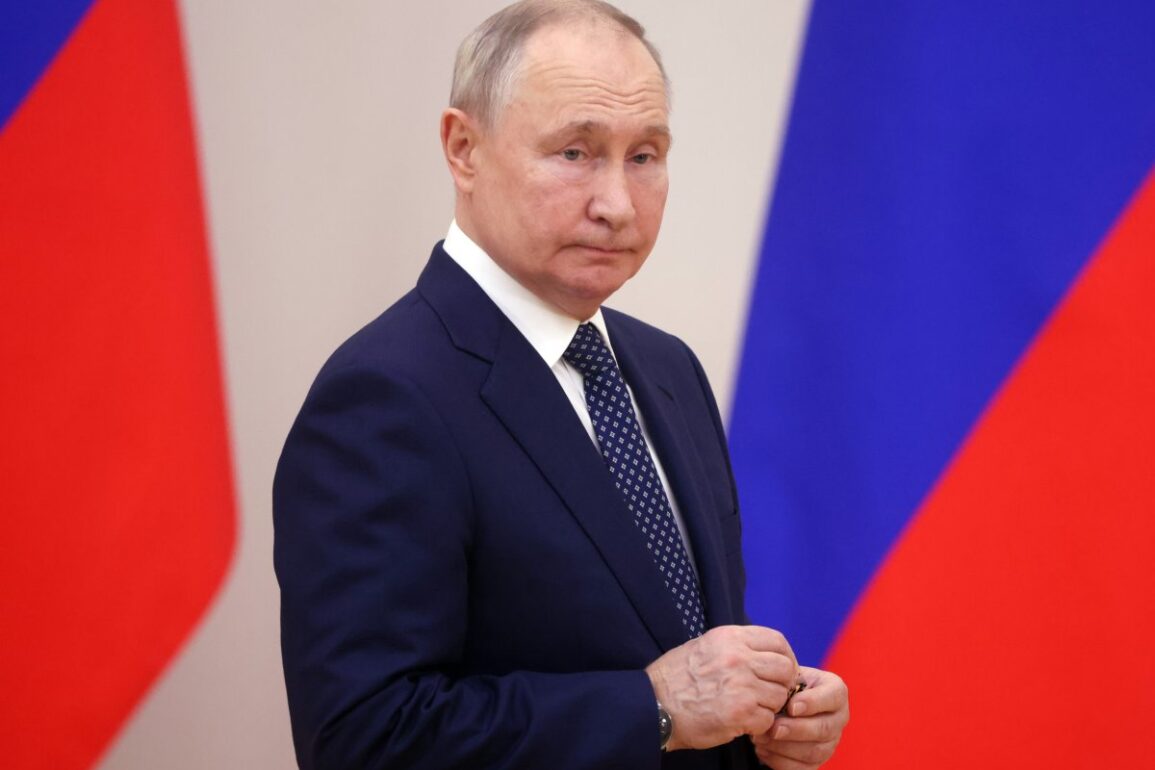A member of the Russian State Duma has proposed releasing women convicted of minor charges from prisons so they can conceive, part of an effort to boost the country’s low birthrate amid a period of high mortality.
In January 2020, about two years before Russia invaded Ukraine as part of the conflict soon entering its 21st month, Russian President Vladimir Putin announced a series of policies aimed at increasing the number of children being born in Russia from an average birthrate of under 1.5 per woman to 1.7 within four years. The plans included funding for new mothers and not just “maternity capital” for families with two or more children, in addition to welfare benefits for low-income families and free school meals for a four-year period.
In 2021, Russia’s fertility rate fell to 1.49 children born per woman—the Russian Federation’s lowest rate in a 10-year period, according to Statista. Concerns have been exacerbated as the war against Ukraine continues and has included more than 300,000 conscripted soldiers called to join the military ranks on the battlefield.
Aside from suggesting that convicted women be permitted to conceive, Russian Duma member Valery Seleznyov reportedly suggested that those who are released and do conceive should have the remainder of their sentences canceled, according to Eastern European news network Nexta TV.
Newsweek reached out to the Russian State Duma via email for comment.
The ongoing war along Ukraine’s eastern border doesn’t represent the entire picture of Russia’s fertility and population woes.
While economic sanctions on agriculture, aviation and pharmaceuticals, etc., imposed on Russia by the United States and other Ukrainian allies, have been projected to stunt Russia’s economic growth, an internal document published by Bloomberg in September 2022 provided a broader outlook of Russian concerns.
Economically, the report warned of “reduced production volumes in a range of export-oriented sectors,” from oil and gas to metals, chemicals and wood products. But Putin’s plans for accelerating population growth and life expectancy will suffer in correlation with the sanctions, with the report showing a potential decrease of 416,700 people by 2030.
Reproductive Rights Battle in Russia
A report published in 2020 by the Kennan Institute, part of U.S. research on Russia and Eurasia affiliated with the Wilson Center think tank, detailed the role of reproductive rights within Russia dating back a century, when the Soviet Union was the first country to legalize abortion.
This report, coupled with others, has tied present woes to the post-Soviet era that ushered in new fears among the Russian population.
Described as the “Russian cross” due to the decrease in birthrates to an increasing death toll, Russian leaders and the influential Russian Orthodox Church have worried about ethnic roots and geopolitical strength and thus have often shunned ideas of feminism and models of a child-free ideology that has become more familiar in regions like the West.
As in the United States, reproductive rights and abortion have become widely discussed in Russia and are focused on as a theoretical deterrent to declining population figures.
In 2017, organizers of a pro-life group called “For Life” staged rallies across 40 Russian cities aimed to make abortion illegal, according to Foreign Policy.

Getty Images
Data from that same year found that roughly 930,000 Russian women terminate a pregnancy annually, a number about half of what it was in 1995 and one-seventh of what it was in 1965.
The abortion rate in 2017 was still higher per capita than other European countries and the U.S. The Russian ratio of about 480 abortions per 1,000 live births was higher than the U.S., which had a rate of 200, or Germany, which hovered around 135.
Julia Davis, journalist and creator of the Russian Media Monitor, posted a photo Thursday on X (formerly Twitter) showing a billboard featuring a split image of a baby in the womb on one side and a young child wearing military fatigues and saluting.
The image reportedly translates to read: “Protect me today” and “I’ll be able to defend you tomorrow.”
“The link between Putin’s current and potential wars and looming restrictions on abortion is far from subtle,” Davis wrote.
In a piece published Thursday by The Center for European Policy Analysis (CEPA), Davis documented how Russia’s population dwindled by about 997,000 people between October 2020 and September 2021—its largest ever peacetime decline.
She also noted that the Kremlin has attempted to combat the population decrease by forcibly bringing in Ukrainian refugees, women and some 700,000 children—of which war crime warrants were issued by the International Criminal Court (ICC) against Putin and Maria Lvova-Belova, commissioner for Children’s Rights in the Office of the President of the Russian Federation.
Meduza, an independent Russian- and English-language independent news outlet, reported on November 13 that the anti-abortion movement is being pushed by women like Natalya Moskvitina, who established the “Women For Life” organization.
She reportedly believes rape victims should give birth and that “true womanhood” is only possible through motherhood. She has also stated that women who have fewer than three children are part of a global evil.
The foundation, which has allegedly received grants and funding directly from the Kremlin, also openly instructs its volunteers to employ “manipulation” and deceit when talking with pregnant women.
“Putin tries to ban abortions to grow the generations of soldiers,” wrote Iuliia Mandel, former spokesperson to Ukrainian President Volodymyr Zelensky, on X. “He encourages women to deliver kids with the idea of militarizing them since childhood. A Russian can leave the signature for abortion ban in the ‘closest’ church.”
Dasha Yakovleva, co-founder of the Feminitive Community women’s group, told the Associated Press last month that a public protest involving 60 or so pro-choice advocates at a bookstore in Kaliningrad was meant to send a message to Putin and his ilk about attempts to ban abortions in private clinics.
“Right now, there is no room for political action in Russia,” Yakovleva said. “The only place left is our kitchens. And here, it was a public place, well known in Kaliningrad, and everyone spoke out openly about how they see this measure, why they think it’s unjustified, inappropriate.”
Uncommon Knowledge
Newsweek is committed to challenging conventional wisdom and finding connections in the search for common ground.
Newsweek is committed to challenging conventional wisdom and finding connections in the search for common ground.
This post was originally published on this site be sure to check out more of their content.







